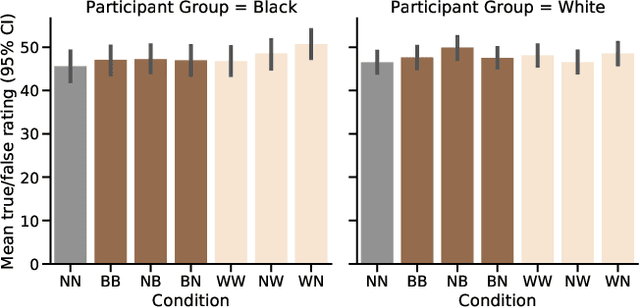Identity Signals in Emoji Do not Influence Perception of Factual Truth on Twitter
Paper and Code
May 07, 2021



Prior work has shown that Twitter users use skin-toned emoji as an act of self-representation to express their racial/ethnic identity. We test whether this signal of identity can influence readers' perceptions about the content of a post containing that signal. In a large scale (n=944) pre-registered controlled experiment, we manipulate the presence of skin-toned emoji and profile photos in a task where readers rate obscure trivia facts (presented as tweets) as true or false. Using a Bayesian statistical analysis, we find that neither emoji nor profile photo has an effect on how readers rate these facts. This result will be of some comfort to anyone concerned about the manipulation of online users through the crafting of fake profiles.
 Add to Chrome
Add to Chrome Add to Firefox
Add to Firefox Add to Edge
Add to Edge